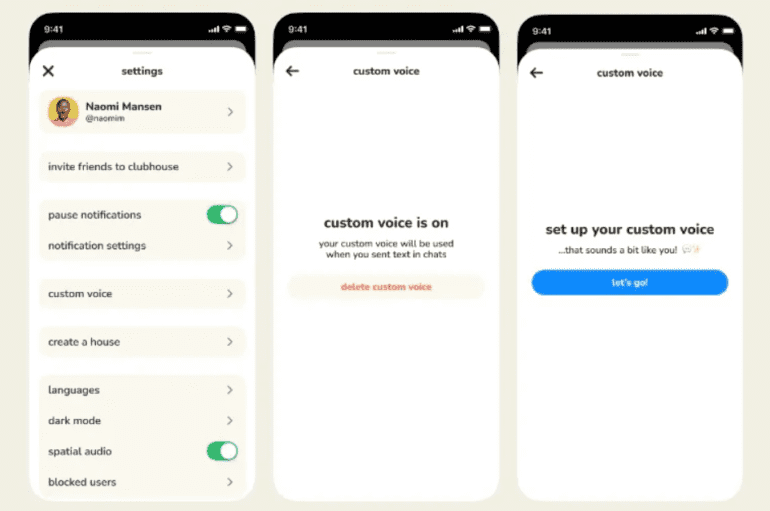TL;DR:
- Clubhouse launches a feature enabling users to convert texts into personalized voice messages.
- The move aims to retain users amidst declining engagement by offering flexible communication options.
- Users can train custom voices for text messages, enhancing the conversational experience.
- AI replicates the user’s voice, though laughter reproduction remains a challenge.
- Clubhouse faces stiff competition from alternative live-audio platforms like Twitter Spaces.
- Sensor Tower data indicates a significant decline in Clubhouse’s monthly active users.
- Apple’s Personal Voice feature parallels Clubhouse’s innovation, catering to accessibility needs.
Main AI News:
In a strategic move to adapt to changing user preferences, Clubhouse has unveiled a groundbreaking feature today: the ability for users to convert their texts into personalized voice messages, delivered in the sender’s own distinct voice.
Amidst a shifting landscape and dwindling user engagement, Clubhouse has introduced group voice chats, reminiscent of Instagram Stories, where members can exchange asynchronous voice messages. Now, with this new offering, Clubhouse recognizes the need for flexibility, acknowledging that not all situations are conducive to sending voice messages. Users can now train their custom voice, sending texts that will be vocalized in their unique tone and cadence. A subtle indicator notifies recipients when an AI voice is articulating a message.
In a recent blog post, Clubhouse emphasized that this feature maintains the essence of real-time conversation, blurring the lines between speaking and typing, listening and reading. “Imagine your friend receiving your text, but hearing your words as if spoken by you in person. This seamless integration ensures that the vitality of live conversation is never lost,” the company remarked.
Despite the minimal training required—merely reading a few phrases—Clubhouse asserts that its AI can faithfully replicate a user’s voice, albeit with limitations in reproducing laughter. For those hesitant to record their voice, the company offers an alternative: autonomous voice generation, likely leveraging text-to-speech technology.
Currently exclusive to the US market, this feature marks Clubhouse’s latest endeavor to revitalize its platform amid waning interest. Despite experiencing significant setbacks, including layoffs, the company remains resolute, boasting a reported valuation of $4 billion following its latest funding round. With dwindling user numbers and increased competition from platforms like Twitter Spaces, Clubhouse seeks to retain its user base through innovative features.
According to app analytics firm Sensor Tower, Clubhouse experienced a surge in popularity in 2021, amassing 35 million downloads. However, faced with changing social dynamics and emerging alternatives, its download count plummeted to 3 million in the subsequent year. Moreover, Sensor Tower reports a staggering 93% decline in monthly active users since the platform’s peak in June 2021.
Interestingly, Apple introduced a similar feature named Personal Voice last year, catering to individuals at risk of losing their vocal abilities due to conditions such as ALS. This underscores the growing trend towards personalized digital experiences, where technology seamlessly integrates with personal expression and accessibility.
Conclusion:
Clubhouse’s introduction of personalized voice messaging reflects a strategic response to evolving market demands. With user engagement dwindling and competition intensifying, the platform’s innovative features aim to reinvigorate interest and retain its user base. However, the significant decline in active users underscores the need for continuous adaptation to stay relevant in a dynamic market landscape.

